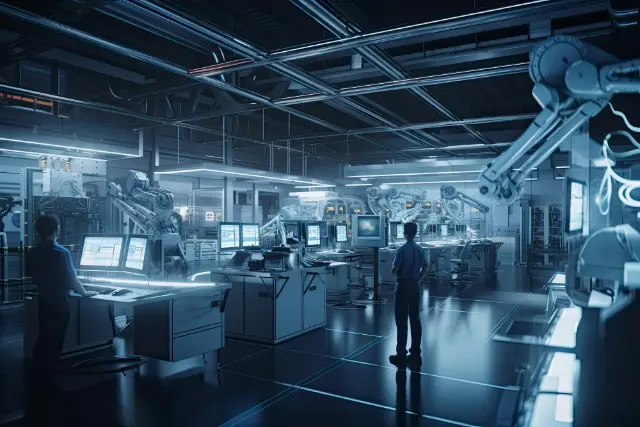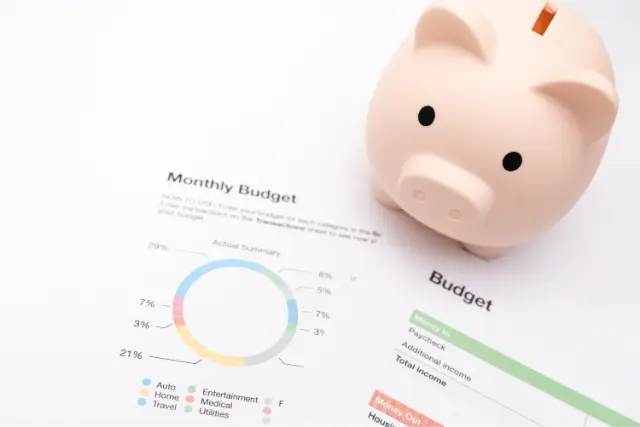Overcoming the Challenges of Budget Tracking and Reporting Automation in the Hospitality Industry
The hospitality industry is a fast-paced and competitive environment, where businesses need to be agile and efficient to succeed. One of the key challenges that hospitality businesses face is managing their finances effectively. This includes tracking expenses, generating budget reports, and forecasting costs accurately.
Budget Tracking and Reporting Automation can help hospitality businesses overcome these challenges. By automating these tasks, businesses can save time and money, improve accuracy, and make better financial decisions.
Python, AI, and cloud-based solutions can be used to automate budget tracking and reporting. These technologies can help businesses to:
- Collect data from multiple sources. This includes data from point-of-sale systems, accounting software, and other sources.
- Clean and normalize data. This ensures that the data is consistent and can be used for analysis.
- Create reports and visualizations. This helps businesses to understand their financial performance and make informed decisions.
- Forecast costs. This helps businesses to plan for the future and make informed decisions about their spending.
Budget Tracking and Reporting Automation can provide hospitality businesses with a number of benefits, including:
- Improved accuracy. Automated systems are less prone to errors than manual processes.
- Time savings. Automation can free up staff to focus on other tasks.
- Cost savings. Automation can reduce the cost of tracking and reporting expenses.
- Better decision-making. Automated systems can provide businesses with the insights they need to make better financial decisions.
If you are a hospitality business, Budget Tracking and Reporting Automation is a valuable tool that can help you overcome the challenges of financial management. By automating these tasks, you can save time and money, improve accuracy, and make better financial decisions.

Python, AI, and Cloud’s Role in Budget Tracking and Reporting Automation
Python is a powerful programming language that is well-suited for developing Budget Tracking and Reporting Automation solutions. Python is easy to learn and use, and it has a large community of developers who have created a wealth of libraries and resources.
Unattended bots are software programs that can run without human intervention. They are often used to automate tasks that are repetitive and time-consuming. Python can be used to develop unattended bots for Budget Tracking and Reporting Automation. These bots can be used to:
- Collect data from multiple sources
- Clean and normalize data
- Create reports and visualizations
- Forecast costs
Attended bots are software programs that require human interaction to complete tasks. They are often used to automate tasks that are complex or require human judgment. Python can be used to develop attended bots for Budget Tracking and Reporting Automation. These bots can be used to:
- Help users to enter data
- Review and approve reports
- Make decisions about spending
Cloud platforms offer a number of features and benefits that make them ideal for Budget Tracking and Reporting Automation. These features include:
- Scalability. Cloud platforms can be scaled up or down to meet the needs of your business.
- Reliability. Cloud platforms are highly reliable and offer a high level of uptime.
- Security. Cloud platforms offer a high level of security and compliance.
AI can be used to improve the accuracy and efficiency of Budget Tracking and Reporting Automation. AI techniques such as image recognition, natural language processing (NLP), and generative AI (Gen AI) can be used to:
- Extract data from documents
- Classify expenses
- Identify trends and patterns
- Forecast costs
By using Python, AI, and cloud platforms, businesses can develop Budget Tracking and Reporting Automation solutions that are accurate, efficient, and scalable.
Here are some specific examples of how AI can be used to improve Budget Tracking and Reporting Automation:
- Image recognition can be used to extract data from receipts and invoices. This data can then be used to create expense reports and track spending.
- Natural language processing (NLP) can be used to classify expenses and identify trends and patterns. This information can be used to create reports and make informed decisions about spending.
- Generative AI (Gen AI) can be used to forecast costs. This information can be used to plan for the future and make informed decisions about spending.
By using AI, businesses can improve the accuracy and efficiency of their Budget Tracking and Reporting Automation solutions. This can lead to significant cost savings and improved financial performance.

Building the Budget Tracking and Reporting Automation
The Budget Tracking and Reporting Automation process can be broken down into the following sub-processes:
- Data collection. This involves collecting data from multiple sources, such as point-of-sale systems, accounting software, and other sources.
- Data cleaning and normalization. This involves cleaning and normalizing the data to ensure that it is consistent and can be used for analysis.
- Report creation. This involves creating reports and visualizations to help businesses understand their financial performance and make informed decisions.
- Cost forecasting. This involves forecasting costs to help businesses plan for the future and make informed decisions about their spending.
Each of these sub-processes can be automated using Python and cloud platforms.
Automating data collection
Python can be used to develop scripts that can collect data from multiple sources. These scripts can be scheduled to run on a regular basis, ensuring that the data is always up-to-date.
Automating data cleaning and normalization
Python can be used to develop scripts that can clean and normalize data. These scripts can be used to remove duplicate data, correct errors, and convert data into a consistent format.
Automating report creation
Python can be used to develop scripts that can create reports and visualizations. These scripts can be used to generate reports in a variety of formats, such as PDF, Excel, and PowerPoint.
Automating cost forecasting
Python can be used to develop scripts that can forecast costs. These scripts can be used to identify trends and patterns in historical data, and to make predictions about future costs.
Data security and compliance
Data security and compliance is of paramount importance in the hospitality industry. Python and cloud platforms offer a number of features and benefits that can help businesses to protect their data.
- Encryption. Python and cloud platforms offer a number of encryption options that can be used to protect data at rest and in transit.
- Authentication and authorization. Python and cloud platforms offer a number of authentication and authorization mechanisms that can be used to control access to data.
- Compliance. Python and cloud platforms are compliant with a number of industry regulations, such as HIPAA and GDPR.
Advantages of using Python
There are a number of advantages to using Python for Budget Tracking and Reporting Automation. These advantages include:
- Python is a powerful and versatile language. Python can be used to develop a wide variety of applications, from simple scripts to complex enterprise systems.
- Python is easy to learn and use. Python is a relatively easy language to learn, even for beginners. This makes it a good choice for businesses that want to develop their own automation solutions.
- Python has a large community of developers. Python has a large and active community of developers who have created a wealth of libraries and resources. This makes it easy to find help and support when developing Python applications.
Limitations of no-code RPA/Workflow tools
No-code RPA/Workflow tools are often limited in their capabilities. They may not be able to automate complex tasks, and they may not be able to integrate with other systems. This can make them a poor choice for businesses that need a robust and flexible Budget Tracking and Reporting Automation solution.
Why Algorythum takes a different approach
Algorythum takes a different approach to Budget Tracking and Reporting Automation because we believe that businesses need a solution that is:
- Powerful. Our solution is built on Python and cloud platforms, which gives it the power and flexibility to automate even the most complex tasks.
- Scalable. Our solution is scalable to meet the needs of businesses of all sizes.
- Secure. Our solution is secure and compliant with industry regulations.
- Easy to use. Our solution is easy to use, even for businesses with no programming experience.
We believe that our approach is the best way to help businesses achieve their Budget Tracking and Reporting Automation goals.

The Future of Budget Tracking and Reporting Automation
The future of Budget Tracking and Reporting Automation is bright. As technology continues to develop, we can expect to see even more powerful and innovative automation solutions.
Some of the future possibilities for Budget Tracking and Reporting Automation include:
- Real-time data collection. Real-time data collection will allow businesses to track their financial performance in real time. This will help businesses to make more informed decisions and to identify potential problems early on.
- Artificial intelligence (AI). AI will play an increasingly important role in Budget Tracking and Reporting Automation. AI can be used to automate complex tasks, such as data analysis and forecasting. AI can also be used to identify trends and patterns in data, which can help businesses to make better decisions.
- Machine learning (ML). ML is a type of AI that allows computers to learn from data without being explicitly programmed. ML can be used to develop Budget Tracking and Reporting Automation solutions that are more accurate and efficient.
We encourage you to subscribe to our newsletter to get more industry-specific automation content. You can also contact our team to get a free feasibility and cost estimate for your custom requirements.
We believe that Budget Tracking and Reporting Automation is a valuable tool that can help businesses to improve their financial performance. We are excited to see what the future holds for this technology.

Algorythum – Your Partner in Automations and Beyond
At Algorythum, we specialize in crafting custom RPA solutions with Python, specifically tailored to your industry. We break free from the limitations of off-the-shelf tools, offering:
- A team of Automation & DevSecOps Experts: Deeply experienced in building scalable and efficient automation solutions for various businesses in all industries.
- Reduced Automation Maintenance Costs: Our code is clear, maintainable, and minimizes future upkeep expenses (up to 90% reduction compared to platforms).
- Future-Proof Solutions: You own the code, ensuring flexibility and adaptability as your processes and regulations evolve.









